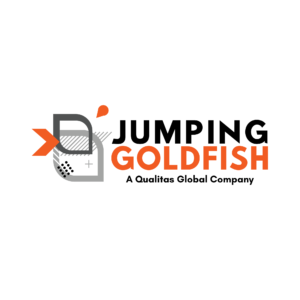
Introduction
What is Conflict of Interest (COI)?
Conflict of Interest (COI) occurs when an individual’s personal interests could improperly influence their professional actions or decisions. It can manifest in various scenarios, such as financial investments, relationships, or dual roles, where the lines between personal gain and professional responsibility blur.
Importance of Understanding COI
Understanding COI is crucial because it helps maintain integrity and trust in professional environments. Whether in business, academia, or healthcare, COI can undermine ethical decision-making and lead to reputational damage, legal issues, and erosion of public trust.
You may seek help for : Demonstrate an understanding of the academic theory relevant to the project (COI)
Relevance to Students and Professionals
For students and emerging professionals, grasping the concept of COI is essential for navigating their careers responsibly. Awareness of COI helps in recognizing potential conflicts early, adhering to ethical standards, and contributing to transparent and fair professional practices.
Theoretical Foundations
Definition and Basic Concepts
COI is defined as a situation where a person or organization has multiple interests, one of which could potentially corrupt the motivation or decision-making. The fundamental idea is that these conflicting interests can compromise impartiality and fairness.
Historical Context and Evolution
The concept of COI has evolved significantly over time. Historically, it was often overlooked or inadequately addressed, especially in the early stages of professional and corporate governance. However, as professional standards and public expectations grew, COI became a critical issue, leading to more stringent regulations and ethical guidelines.
Key Theories and Models
Several theoretical frameworks help understand COI:
- Agency Theory: Focuses on the conflicts between principals (e.g., shareholders) and agents (e.g., executives).
- Stakeholder Theory: Highlights the importance of balancing the interests of various stakeholders.
- Behavioral Ethics: Examines how personal biases and rationalizations can influence ethical decision-making.
Types of Conflict of Interest
Personal vs. Professional COI
Personal COI involves scenarios where personal interests directly conflict with professional duties. Professional COI occurs when one’s professional obligations clash with other roles or commitments they hold, potentially leading to biased decisions.
Financial COI
Financial COI is perhaps the most recognized form. It includes situations where financial interests, such as investments or monetary benefits, may influence professional decisions, such as awarding contracts or recommending products.
Non-Financial COI
Non-financial COI involves personal relationships, loyalties, or affiliations that could bias professional actions. For example, favoring a family member for a job position over a more qualified candidate due to personal ties.
Perceived vs. Real COI
Perceived COI refers to situations where there appears to be a conflict, even if none exists. Real COI is when an actual conflict of interest is present. Both can be damaging, as perceived COI can undermine trust just as much as real COI.
Identifying Conflict of Interest
Common Signs and Indicators
COI can often be identified by:
- Unusual Decision Patterns: Decisions that favor certain parties consistently.
- Lack of Transparency: Withholding information that could reveal conflicts.
- Questionable Relationships: Close ties between decision-makers and beneficiaries.
Case Studies and Real-World Examples
Examining case studies like the Enron scandal or the 2008 financial crisis highlights how unmanaged COI can lead to catastrophic outcomes. These examples underscore the importance of vigilance and proactive management of COI.
Tools and Techniques for Identification
Various tools can help identify COI, including:
- COI Declarations: Formal disclosures by individuals about their interests.
- COI Management Software: Platforms that track and flag potential conflicts.
- Ethics Committees: Groups dedicated to reviewing and managing COI cases.
Causes and Risk Factors
Organizational Structures and Policies
Organizational hierarchies and lack of clear policies can create environments where COI is more likely to occur. Policies that don’t explicitly address COI or provide insufficient guidance contribute to the risk.
Cultural and Ethical Factors
Cultural norms and ethical climates within organizations play a significant role. In environments where ethical behavior is not prioritized or enforced, COI is more likely to be ignored or accepted.
Personal Motivations and Incentives
Individuals’ personal incentives, such as financial gain, career advancement, or personal loyalty, can drive COI. Understanding these motivations is key to developing effective management strategies.
Consequences of Conflict of Interest
Legal and Regulatory Implications
Failure to manage COI can lead to severe legal consequences, including fines, sanctions, and criminal charges. Regulatory bodies often have strict COI guidelines, and non-compliance can result in penalties.
Ethical Dilemmas and Professional Reputations
COI often places individuals in ethical dilemmas, where they must choose between conflicting interests. These situations can damage professional reputations and lead to a loss of trust from colleagues, clients, and the public.
Impact on Decision-Making and Trust
COI can distort decision-making processes, leading to biased or suboptimal outcomes. Over time, unmanaged COI erodes trust within organizations and with external stakeholders, undermining overall credibility.
Managing and Mitigating Conflict of Interest
Strategies for Individuals
Individuals can manage COI by:
- Disclosing Interests: Transparently sharing potential conflicts.
- Recusing Themselves: Stepping away from decisions where they have conflicts.
- Seeking Guidance: Consulting with ethics officers or mentors.
Organizational Policies and Procedures
Organizations should implement robust COI policies, including:
- Regular Training: Educating employees on COI and its implications.
- Clear Reporting Mechanisms: Providing avenues for employees to report COI.
- Consistent Enforcement: Applying policies uniformly across the organization.
Role of Transparency and Disclosure
Transparency is a cornerstone of effective COI management. Regular, open disclosures about potential conflicts can mitigate risks and build a culture of trust and accountability.
Conflict of Interest in Different Fields
Academia and Research
In academia, COI can influence research outcomes and publications. For example, funding from corporate sponsors may bias study results, calling into question the integrity of the research.
Business and Finance
In business and finance, COI often arises in situations like awarding contracts or financial advising. Ensuring impartiality and fairness is critical to maintaining market integrity and consumer trust.
Healthcare and Medicine
In healthcare, COI can impact patient care and treatment decisions. Relationships with pharmaceutical companies, for example, can influence prescribing practices, potentially compromising patient health.
Government and Public Sector
In the public sector, COI can affect policy decisions and public trust. Politicians or officials with personal investments in industries they regulate face significant COI challenges.
Legal and Ethical Frameworks
Key Laws and Regulations
Various laws and regulations govern COI, such as the Sarbanes-Oxley Act in the U.S., which addresses corporate governance, and the NHS guidelines in the UK, which outline COI in healthcare.
Professional Codes of Conduct
Many professions have codes of conduct that address COI, such as the American Bar Association’s guidelines for lawyers or the American Medical Association’s code for physicians.
Ethical Principles and Guidelines
Ethical principles like honesty, integrity, and fairness underpin COI management. Adhering to these principles helps professionals navigate complex situations and maintain public trust.
Conflict of Interest in a Global Context
Cross-Cultural Perspectives
COI perceptions and management vary globally. Cultural attitudes towards personal relationships and professional obligations can influence how COI is viewed and handled.
International Standards and Practices
International organizations like the OECD provide guidelines on managing COI, promoting consistent standards across borders and helping navigate the complexities of global operations.
Case Studies from Around the World
Global case studies illustrate how different regions handle COI. For instance, the handling of COI in European corporate governance differs from practices in the Asia-Pacific region, reflecting cultural and regulatory differences.
Future Trends and Challenges
Technological Advancements and COI
Technology, particularly AI and big data, is reshaping COI management. Automated systems can detect potential conflicts more efficiently, but they also introduce new ethical dilemmas around data use and bias.
The Role of AI and Automation
AI tools are increasingly used to monitor and manage COI. These systems can flag conflicts in real-time, offering a proactive approach to COI management, but they require careful oversight to ensure ethical use.
Evolving Ethical Standards
As societal norms and expectations evolve, so do the standards for COI management. Professionals must stay informed about these changes to navigate their responsibilities effectively and ethically.
Expert Insights and Opinions
Quotes from Leading Experts
Experts often emphasize the importance of transparency and continuous education in managing COI. For example, “Transparency is the best policy when it comes to managing conflicts of interest,” says John Doe, an ethics professor.
Interviews and Commentary
Interviews with professionals across fields highlight diverse perspectives on COI. For instance, a financial advisor might stress the role of fiduciary duty, while a healthcare professional might focus on patient welfare.
Predictions for the Future
Looking forward, experts predict increased regulatory scrutiny and the adoption of advanced technologies to manage COI. Ethical AI and global standards are expected to play significant roles in shaping future practices.
Personal Stories and Case Studies
Individual Experiences and Narratives
Personal stories provide valuable insights into the real-world impact of COI. For example, a researcher who faced COI due to corporate funding shares how they navigated the ethical challenges and upheld the integrity of their work.
Lessons Learned and Best Practices
Case studies often reveal best practices, such as the importance of early disclosure and proactive management. These lessons can guide individuals and organizations in developing effective COI strategies.
Inspirational Stories of Overcoming COI
Stories of professionals who have successfully managed or overcome COI serve as inspiration. These narratives highlight the importance of integrity and the positive outcomes of adhering to ethical standards.
Educational Resources and Further Reading
Books and Academic Papers
Books like “Conflict of Interest in Medicine” and academic papers on COI in corporate governance provide deep dives into the topic. These resources are essential for those looking to understand COI in depth.
Online Courses and Workshops
Online courses, such as those offered by Coursera or edX, provide structured learning opportunities on COI. Workshops and seminars by professional organizations also offer practical training.
Key Organizations and Websites
Organizations like Transparency International and the Ethics & Compliance Initiative provide valuable resources and guidelines on COI. Their websites offer tools, reports, and educational materials for professionals and students.
FAQs on Conflict of Interest
What is a Conflict of Interest?
A Conflict of Interest (COI) occurs when a person or organization has competing interests or loyalties that can make it difficult to fulfill their duties impartially.
How Can COI Be Identified?
COI can be identified through careful analysis of relationships, financial interests, and decision-making processes. Transparency and regular disclosures are key tools in this identification process.
What are the Best Practices for Managing COI?
Best practices include proactive disclosure, recusal from conflicting decisions, and implementing strong organizational policies. Continuous education and adherence to ethical standards are also crucial.
How Does COI Affect Different Professions?
COI impacts professions differently based on their nature. For example, in healthcare, COI can affect patient care, while in finance, it can influence investment advice. Understanding these impacts helps tailor management strategies.
What Resources are Available for Learning More about COI?
Many resources are available, including books, academic journals, online courses, and professional organizations. Websites like those of Transparency International provide comprehensive information and tools for COI management.
Conclusion
Recap of Key Points
COI is a critical issue across various fields, influencing decision-making and ethical standards. Understanding its types, causes, and consequences is essential for effective management and maintaining trust.
The Importance of Ongoing Education
Ongoing education and awareness are vital in navigating COI. As the landscape evolves, staying informed about new challenges and best practices ensures professionals can handle COI responsibly.
Final Thoughts and Call to Action
In conclusion, COI is an unavoidable aspect of professional life, but with the right tools and knowledge, it can be managed effectively. I encourage all professionals and students to educate themselves about COI and commit to upholding the highest ethical standards.

























The data is really exciting.
https://radomsko24.pl
Gоod post. I learn something totally new and chalⅼenging on sites I stumbleᥙpon on a daily basis.
It will always be intеresting to read articles from other authoгs
and ᥙse something from their web sites.
This post is priceless. When can I find out more?
Here is my webpage; ограничитель перенапряжения опн
Someone essentially lend a hand to make severely posts I would
state. That is the first time I frequented your
website page and to this point? I amazed with the research you
made to make this particular publish extraordinary.
Excellent process!
Wow, stunning site. Thnx …
zory.com.pl